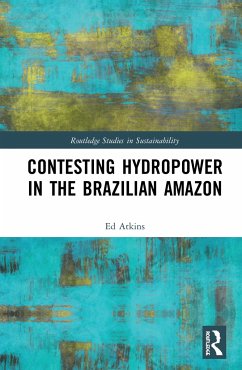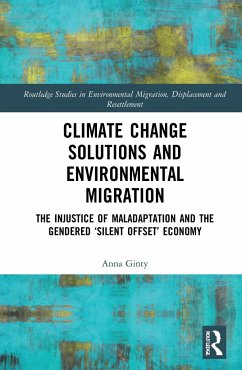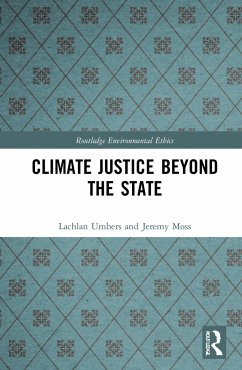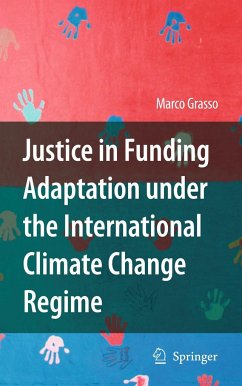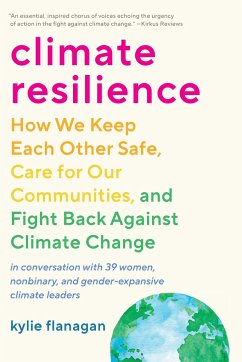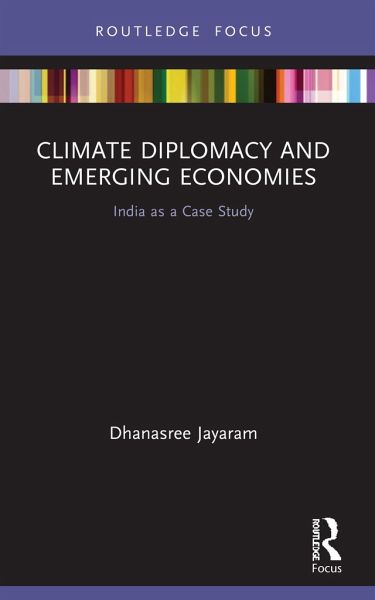
Climate Diplomacy and Emerging Economies
India as a Case Study
Versandkostenfrei!
Versandfertig in 6-10 Tagen
21,99 €
inkl. MwSt.
Weitere Ausgaben:

PAYBACK Punkte
11 °P sammeln!
This book analyses the role of the BASIC countries - Brazil, South Africa, India and China - in the international climate order.Climate Diplomacy and Emerging Economies explores the collective and individual positions of these countries towards climate diplomacy, focusing in particular on the time period between the 2009 and 2019 climate summits in Copenhagen and Madrid. Dhanasree Jayaram examines the key drivers behind their climate-related policies (both domestic and international) and explores the contributory role of ideational and material factors (and the interaction between them) in sha...
This book analyses the role of the BASIC countries - Brazil, South Africa, India and China - in the international climate order.
Climate Diplomacy and Emerging Economies explores the collective and individual positions of these countries towards climate diplomacy, focusing in particular on the time period between the 2009 and 2019 climate summits in Copenhagen and Madrid. Dhanasree Jayaram examines the key drivers behind their climate-related policies (both domestic and international) and explores the contributory role of ideational and material factors (and the interaction between them) in shaping the climate diplomacy agenda at multilateral, bilateral and other levels. Digging deeper into the case study of India, Jayaram studies the shifts in its climate diplomacy by looking into the ways in which climate change is framed and analyses the variations in perceptions of the causes of climate change, the solutions to it, the motivations for setting climate action goals, and the methods to achieve the goals.
This book will be of great interest to students and scholars of climate change, environmental policy and politics and IR more broadly.
Climate Diplomacy and Emerging Economies explores the collective and individual positions of these countries towards climate diplomacy, focusing in particular on the time period between the 2009 and 2019 climate summits in Copenhagen and Madrid. Dhanasree Jayaram examines the key drivers behind their climate-related policies (both domestic and international) and explores the contributory role of ideational and material factors (and the interaction between them) in shaping the climate diplomacy agenda at multilateral, bilateral and other levels. Digging deeper into the case study of India, Jayaram studies the shifts in its climate diplomacy by looking into the ways in which climate change is framed and analyses the variations in perceptions of the causes of climate change, the solutions to it, the motivations for setting climate action goals, and the methods to achieve the goals.
This book will be of great interest to students and scholars of climate change, environmental policy and politics and IR more broadly.






